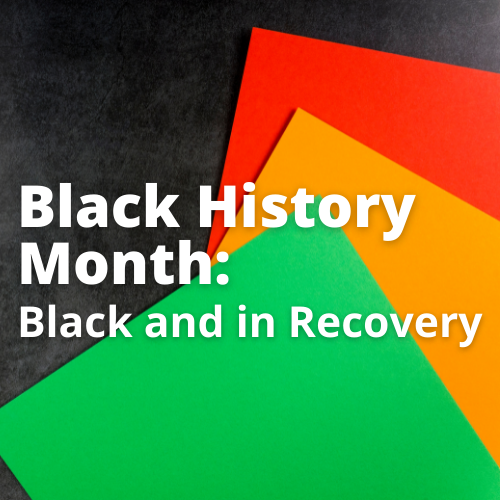
Black History Month: Black and in Recovery
Black and in recovery
Many individuals are Black and in recovery that you may not know about. As we continue celebrating and honoring Black individuals’ achievements this February it’s important to celebrate those that are black and in recovery. When a person chooses long-term recovery it’s one of the greatest gifts they can give themselves. In addition, they become an incredible role model for all of us regardless of age or race.
Malcolm X
Malcolm X was born Malcolm Little and was known for his outspoken activism for human rights and founded the Organization of Afro-American Unity. Malcolm’s substance use and recovery isn’t well known. For many years he supported his heavy using with crime such as burglary and dealing. However when he went to prison, Malcolm found recovery through the Muslim religion; becoming a minister later on. Once he was in recovery, he encouraged other Black Americans to quick using and said that in sobriety you find dignity.
Darryl Strawberry
In 1983 Darryl Strawberry was drafted to the New York Mets, receiving Rookie of the Year. Throughout his 17 years in Major League Baseball he had multiple suspensions for substance use and other illegal activities. Further, in 2000 he violated his probation by taking painkillers while driving and caused an accident that led to house arrest. After many violations he ended up serving 11 out of an 18 month sentence in 2002.
Darryl reports he has been in recovery since and even opened a treatment center in St. Cloud, Florida and looks to open more in the future. He remains committed to helping those saying “It’s not all about me. Sometimes people too often think celebrities and athletes are all about themselves and I was at one point…I was a great baseball player and had a chance to do that. I just want to be able to help some of those that are less fortunate than me.”
Jayson Williams
Jayson Williams is a former professional basketball player who found success playing for the Philadelphia 76ers and the New Jersey Nets. Sadly, an accidental shooting in 2002 left his limo driver dead and he was sent to prison for manslaughter for attempting to cover up it up. Jayson had been drinking and thought the gun wasn’t loaded.
During his incarceration he attended treatment and in 2017 founded Rebound, A Better Solution in Jupiter, Florida. (Now known as Futures Recovery Healthcare.) This residential program has a minimum 45 day stay and welcomes many professional athletes and high-profile doctors.
Jada Pinkett-Smith
Jada Pinkett-Smith grew up with a mother that misused alcohol in Baltimore, Maryland. In an interview with ABC News she was very open and described her childhood was like living in a “war zone” of drugs addiction and poverty. After a realization in 1997 after drinking two bottles of wine she bravely began her road to recovery. “I’ve learned that recovery isn’t just for those suffering from substance abuse, but that recovery is about recovering from our traumas, abuse, neglect, abandonment, lack of self-worth, disappointments, failed relationships, the loss of loved ones and so on…”
She also hosts the show Red Table Talk where many guests appear and talk candidly about their recovery and overcoming past traumas.
Dwight Gooden
Dwight Gooden, known as Dr. K, was a professional baseball pitcher who played in the MLB (Major League Baseball) for 16 seasons, including the 1986 World Series winning NY Mets. It was after that winning season that Gooden began using alcohol and drugs heavily. Then in 1994 he tested positive for cocaine and was suspended. In addition to this he had several arrests and later spent a year in prison. However, in 2010 he voluntarily went to a residential treatment program and March 4, 2011 marks the last time Dwight used a substance.
Do you want help?
Everyone’s recovery journey is unique. Once out of treatment it’s important to work with your counselor on next steps because it allows the individual to stay on target with their recovery goals.
Here at Lifeline Connections, we offer all of these things with our substance use treatment services and recovery community. Additionally, our compassionate counselors are a phone call away to help you start your recovery journey. Call (360) 397-8246 ext. 30500 to schedule an appointment for your assessment today.
